PPP (One Placement Creates One Plant to Save the Planet)
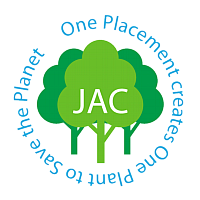
Since 2008, even before the SDGs were formulated, the JAC Group has been involved in reforestation activities in Southeast Asia under the slogan "One Placement creates one Plant to save the Planet".
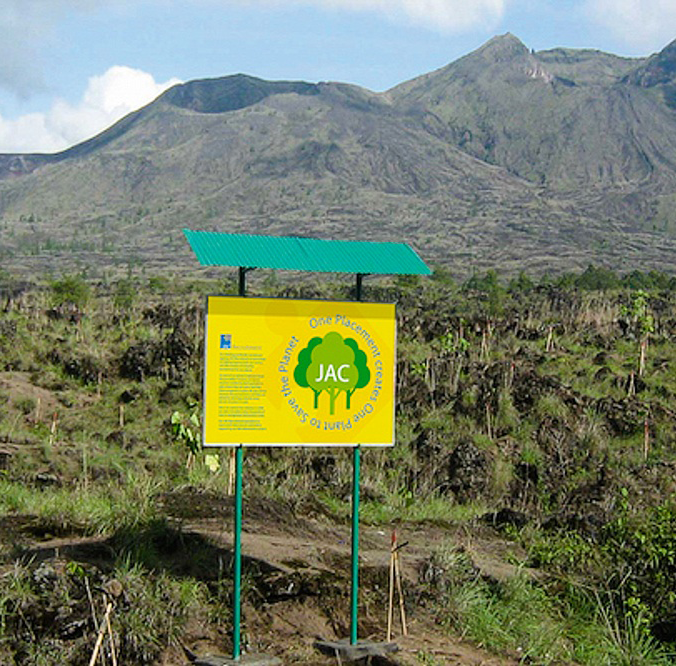
By planting a tree for each person who has changed jobs through a JAC Group company, we can express our hope for the continuous development of our client companies and the individuals who grow their careers in them, while at the same time contributing to the fight against global warming.
As a global recruitment agency, it is our desire to promote environmental conservation on a global scale. We believe that the restoration and protection of tropical rainforests is an invaluable first step towards combating the threat of climate change and restoring health and beauty to our planet.
Tree-planting areas and cooperating organisations
Bali Island (Penelokan District, Kintamani District, Bangli Province, Republic of Indonesia)
Cooperation: NPO Asian Afforestation Friendship Association
Borneo (Apen Protected Forest, Serian District, Sarawak, Borneo, Malaysia)
Cooperation: Japan Malaysia Association
Since 2008, the JAC Group has planted 154,666 trees (as of the end of 2024). The project promotes not only the forest regeneration itself but also the economy of the area, as local people grow seedlings commercially and are directly involved in the tree-planting work itself.
Indonesia, Bali Island
he JAC Group has been involved in reforestation activities in Bali, Indonesia, through the non-profit organization NPO Asian Green Forest Network (AGFN), to restore the original aquifer and watershed function* of the forest by planting indigenous tree species such as ampupu (Eucalyptus urophylla), candlenut (Aleurites_moluccanus) and melina (Gmelina arborea) in the devastated land that was turned into grassland by the eruption of Mount Batur.
Malaysia, Borneo
Since 2008, the JAC Group has been involved in the restoration of lowland rainforest vegetation in Borneo, Malaysia, mainly by planting native dipterocarp species in secondary forest degraded by logging, and in the conservation of mangrove plantations, through the Japan Malaysia Association. Through the association, we also support the work of the Orangutan Conservation Centre in Semenggoh Wildlife Sanctuary, Sarawak whose work not only aims to restore and conserve Malaysia's tropical rainforests, but also to save the orangutans and other life forms that inhabit these forests.
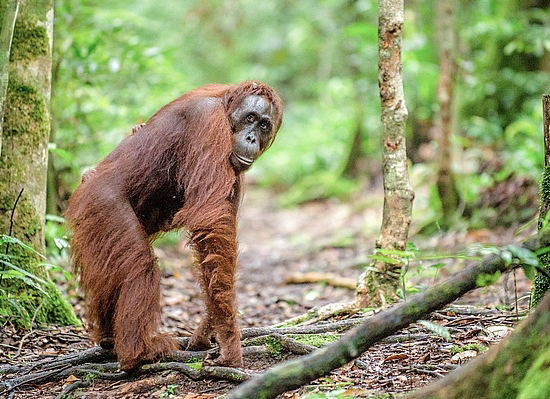
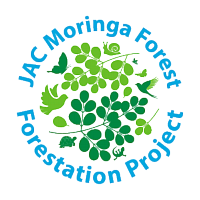
Starting in 2024, the JAC Moringa Forest Project was launched in Malaysia, Okinawa, and other regions to restore forests in devastated areas.
Each year, approximately 10,000 GHG-absorbing moringa trees and other indigenous species are planted in each region. This initiative aims to
create jobs for local residents, restore the natural environment, and achieve carbon net-zero status by 2030.
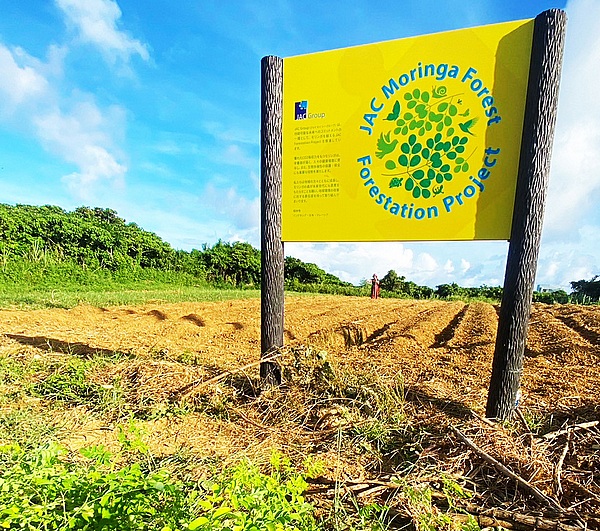
Fast-Growing Climate Solution Moringa trees, known for their rapid growth of over 3 meters per year, are highly effective in absorbing carbon dioxide. Each Moringa tree can absorb approximately 110-160 kg of CO2 annually, which is 14-20 times more than a typical cedar tree, making them a powerful tool in mitigating climate change. These tree-planting activities also promote local employment and sustainable land use, offering both environmental and economic benefits.
Malaysia, Borneo
In addition to the PPP Project, we will plant more Moringa trees than native species, with an expected 4,000 trees planted each year, aiming for 20,000 over five years.
Miyako Island, Okinawa Prefecture
With forest cover at just 16.4% and rising CO2 emissions due to increased tourism and construction, Miyako Island faces significant environmental challenges. To address this, we plan to plant 1,000 Moringa trees in 2024, with further increases in subsequent years, alongside native species, to promote tourism and reduce CO2 emissions.
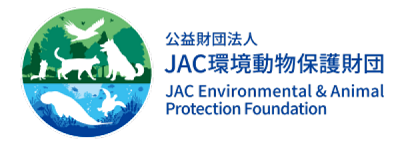
In March 2022, our Chairman and President, Hiromi Tasaki, established the JAC Environmental Animal Protection Foundation to eradicate the killing of dogs and cats in Japan and to protect rare and endangered animals and their natural habitats. The foundation supports sustainable coexistence between people and animals by providing grants to organizations dedicated to animal and environmental protection. Funded by donations from Hiromi Tasaki, the foundation aims to fundamentally transform nature conservation and animal protection in Japan. JAC Environmental & Animal Protection Foundation website (In Japanese only)
Grants for Conservation Groups
To date, 120 organizations across Japan, from Hokkaido to Okinawa, have received grants totalling 158.8 million yen (as of June 2024). Starting FY2024, grants also support improving the welfare of domestic and industrial animals, including projects like repairing equipment at small-scale chicken farms, enhancing living conditions for pasture-raised pigs, and supporting old farms for racehorses and retired breeding horses.
Educational Initiatives
In April 2024, the foundation established the One Welfare Endowed Chair at Nippon Veterinary and Life Science University. This is Japan's first university-based centre for educational activities on One Welfare, promoting the interconnected well-being of people and animals and fostering a sustainable society.
Employee Volunteer Activities
In May 2024, we launched a volunteer registration system for JAC Group employees to engage in local environmental conservation activities. Employees can participate in these activities through a volunteer leave system, which offers two days per year for volunteer work.
